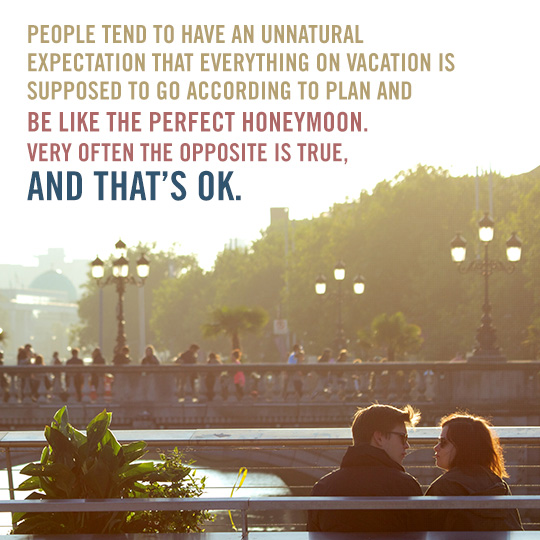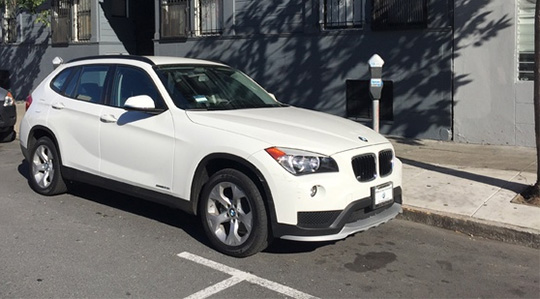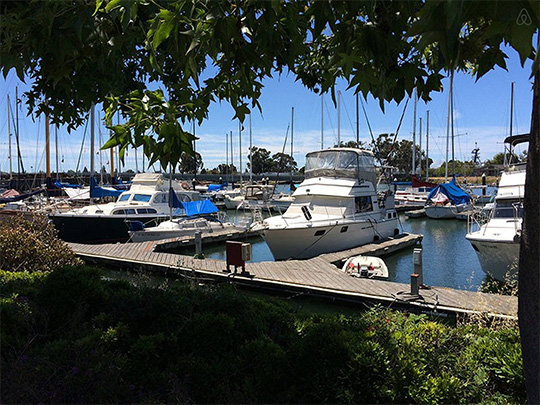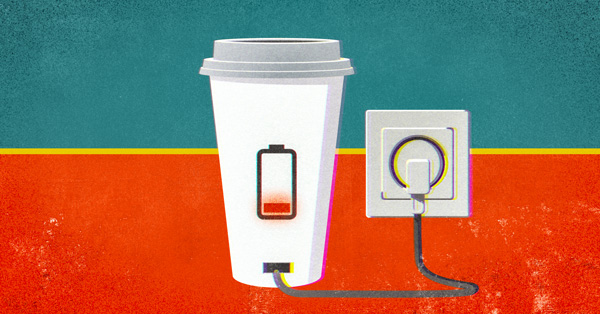Ask ten people what their idea of a perfect vacation is and you’ll get ten different answers. Ask ten couples the same question and you’ll get infinitely more.
For some people, vacation is all about adventure–exploring parts unknown and cramming activities into every last minute of every jam-packed day. For others it’s a chance to escape from the everyday–to unplug from the world and revel in complete inactivity.
Whether your ideal vacation involves diving off a cliff into the ocean or diving into a stiff drink in a metropolis, traveling as a couple means you’re going to have to consider what someone else wants. That means compromise. Since your annual vacation days are both precious and few, you want to be sure to get as much out of them as you can.
In a long-term relationship, especially if you live together, traveling gives you a chance to spend time together outside the context of your normal workaday lives. For newer relationships, your first big trip as a couple is a significant milestone and might just signify the transition from casual to serious. It can also give you a useful glimpse of what your domestic lives may someday hold if matrimony is potentially on the table. If you can’t get along for so much as a weekend at a bed & breakfast together, it’s a long shot you’ll be able to spend a lifetime of ups and downs with that person.
We’ve covered some other jetsetter essentials such as traveling in style and packing like a pro, so be sure to also read these posts before hitting the road or jetway for a complete view of how to up your travel game.
You’ll save yourself a lot of aggravation at the outset if you prepare for the unexpected, have backup plans, and commit to not letting it ruin your trip if you get in an argument or if something doesn’t go your way. It happens. People tend to have an unnatural expectation that everything on vacation is supposed to go according to plan and be like the perfect honeymoon. Very often the opposite is true, and that’s ok.
How to pay for it
No matter how much like paradise your vacation feels, the bill still comes due when you get home. Unless of course you’ve paid for all or most of your trip ahead of time. Which is totally possible with a little advance planning.
For newer couples, a joint vacation could be the first real financial decision you make together. If you’re open about each other’s finances, it shouldn’t be too difficult to divvy up vacation expenses based on your respective incomes. If you’re already living together, the same math you use to divide household expenses should also work here.
There are a million ways to cut corners on a vacation, but some cuts go much deeper than others. Remember: this is your vacation together, so it shouldn’t be looked at as a race to the bottom. If ever there was a time to splurge a little it’s now. But there’s a prudent way to splurge and a haphazard way, and there is usually a price to pay when you skimp on vacation, especially when you’re looking for a romantic getaway.
For every $50 you save on flights or hotels, little inconveniences or annoyances start to creep in. If you book a stay at the cheapest acceptable hotel with the cheapest possible flight to your destination, you can expect at least one layover, and a so-so hotel, usually no closer than 10 miles to the city center, so you’ll need a rental car or rely on public transit or taxis if you don’t know any locals.
I’ve talked about the pitfalls and potential of using credit cards before, and vacation planning is a great time to either follow or completely reject my suggestions. If you’ve saved for the trip and can pay off the card right away, it’s a great chance to earn a nice chunk of points or bonus cash. I’ve also extolled the virtues of joint checking accounts and how couples can use them to their advantage by rounding up to the nearest $10 deposits made for bills and then siphoning off the excess at vacation time.
Gift-giving holidays like Christmas and Valentine’s Day are a great exercise in giving up something now in exchange for a much greater return later. If instead of exchanging gifts you both make a deposit to your joint account equal to the amount you would have spent, you would instantly fortify your vacation savings with another few hundred bucks. If you both decide to do without birthday presents as well, you’ll beef up the vacation fund even more. A little delayed gratification goes a long way when you’re planning a trip you will remember forever. One video game or a cheap pair of gold earrings can easily equal the cost of a romantic dinner for two.
And really which would you rather have: Some gifts you both scrambled to find at the last-minute, or a better romantic vacation?
How to get there
Driving and flying both have their own drawbacks and advantages. Flying is obviously much faster and you can go farther, but it’s pricier, especially when you factor in the need for public transit, rental cars or taxis. Driving can be a more wallet-friendly option with gas prices where they are going into the summer.
As the price of flying has soared, technology now allows us to mine huge databases and spit out the cheapest possible fare without a travel agent. Meta search engines can help cut through some of the seemingly endless lists of deals offered on flights and hotels from price aggregating websites.
If the actual destination is less important than just being there, Skyscanner allows you to pick the closest departing airport and see a list of destinations based on price, both domestically and internationally. So if the goal is to get out of town and see the world, this is a great way to do it on a budget. You can even set up email alerts for fare drops on specific routes. Trivago does the same thing but for hotels, comparing prices on scores of other travel sites.
If you do plan on getting to your destination by air, expect plane tickets to take up at least 30-50 percent of your budget. But factors as simple as when you buy can mean the difference of hundreds of dollars depending how far you’re traveling.
A 2015 study conducted by Expedia and Airlines Reporting Corporation shows that you’re likely to get the lowest fare buying plane tickets on a Tuesday than any other day of the week. They also reported the cheapest time to buy a ticket on a domestic flight is 57 days ahead of time, and 171 days before international flights.
The study shows using this timetable results in a per-ticket savings of approximately $95 for domestic flights and $340 for international flights compared to the average prices throughout the year. So knowing your plans well in advance could save you some serious coin. Most hotel deal aggregator websites also give the option of buying nonrefundable tickets, so if your plans are absolutely iron clad you can usually save another $15-20 a night.
These days unless you’re a frequent traveler heavily invested in a specific carrier’s loyalty program, you very likely buy the cheapest tickets you can get your hands on that don’t include flying with crates of live poultry. But don’t just pounce on the lowest fare returned by whatever search engine you use. Carefully compare departure and arrival times as well as any layovers and consider the real cost of those discounts.
Flight A might cost $35 per ticket more than Flight B, but if Flight B includes a 4 hour layover and a 9:55 pm arrival time it could cost a whole lot more in aggravation and wasted time. And don’t forget to make sure your seats are together. It’s a big bummer sitting 9 rows apart from your significant other on a cross-country flight, and that way if the armrests between seats go up, your seats magically become a loveseat!
Packing as a couple isn’t the same as packing for yourself
Personally, unless it’s absolutely necessary I avoid checking luggage. For carrying on, an overnight bag does the trick rather nicely. But when traveling as a couple you’ll have to put a bit more thought into it.
I don’t think it’s controversial to say that men and women have different priorities when it comes to packing luggage. Now that airlines are charging hefty fees for overweight or extra checked bags (which can run as much as $100), packing smart is essential unless you have money to burn.
For starters, you can save weight in your luggage by wearing your heaviest shoes and outer layer on the flight. Shoes take up the most room in a suitcase by far, and assuming you bring a pair of sneakers and a pair of dress shoes and she brings 3-4 pairs of her own (or more), that’s a lot of space and weight in shoes alone. Except maybe in the event of a very long trip, a couple could probably get away with bringing only carry-ons for clothing and packing a separate bag to be checked containing these heavier items, as well as things like socks, underwear and toiletries. The weight limit for checked bags is typically 50 pounds per bag, so even the most ardent shoe and cologne enthusiasts would be hard-pressed to hit this limit using this method. No matter what, make sure to pack at least one day’s clothes in your carry-on bag. Just in case your checked bag gets lost or delayed en route you don’t want to be stuck without a change of clothes.
To rent a car, or not to rent?
Rental cars represent another double-edged sword in the game of travel. On the one hand, having pre-paid, always-available personal transportation is a huge convenience. But that convenience is gonna cost you. Forgetting the $25-50 per day cost for even an “economy” rental, if you’re staying in a city, many hotels charge as much as $20 or more PER NIGHT just for parking. Some even have mandatory valet for the same price or more. And that’s just at your hotel. You’ll also have parking garages and meters to contend with, and of course will be liable for any traffic or parking tickets you accrue on your trip.
Whether you’ll need a car depends in large part on the kind of trip you’re taking. If you’re spending a week lounging on a beach in a tropical paradise at an all-inclusive resort or in a city with a dynamite public transit system you can probably do without a car. But if you’re using the hotel as a hub and traveling between multiple points with some miles between them, a rental car might be a good idea.
Finding the balance using your priorities as a guide can help make sure the money you spend goes most towards the things that matter most to you. If you’ll be taking a summer road trip along the Pacific Coast Highway and staying in no-frills mom and pop motels throughout, you can use some of the money you’ll save on lodging for an upgraded rental car. An extra $20 or so per day for a convertible is the kind of upgrade that directly enhances the experience, which in this case is the drive itself.
If your budget only allows for an economy rental car but the idea of schlepping around in a compact on your romantic vacation is a turn-off, you can consider services like RelayRides, where individuals can rent out their own cars for a fraction of the cost of the standard rental. For example in San Francisco you can rent a 2015 BMW X1 SUV for only $64 a day. Many are even available with free pick-up and drop-off at the airport. For comparison, a Toyota Rav4 at a local SF Enterprise is $150 per day.
If you choose not to bother with a rental car, startups like Lyft and Uber have come along in recent years and offer an attractive alternative. With a few button presses on their respective apps, you can have a high-end black car service at your beck and call in most major cities, usually for the same price or less than a standard hailed taxi. If you only need a car for short distances or occasionally, you can save money here by ditching the rental car and use the savings for a better room or a more centrally located hotel. Plus there’s the invaluable benefit of not needing a DD.
| Car / day | $35.00 |
| Gas | $100.00 |
| Total Parking / day | $35.00 |
| Total cost for 7 day vacation | $590.00 |
| Uber for 7 days total | $588.00 |
| Uber daily allowance | $84.00 |
$84 is a bunch of Uber rides, unless you're going long distances. This obviously only makes sense if paying for parking will be a factor. The nice thing about Uber/Lyft is you save a lot of hassle as well, getting to and from the rental car location, etc.
Where to stay
A big question you’ll want to ask before you start making reservations is what are you looking for in a hotel room. Will the room itself be part of the vacation or a place to flop down at the end of each night? Are you looking for a romantic love nest or four walls and a bed? If you don’t plan on spending any time in the room, you can get away skimping a bit on plush accommodations. If you don’t need floor-to-ceiling windows, two marble-clad bathrooms with heart-shaped tubs and a touch-sensitive minibar packed with Toblerones and Fiji, you can save big money on lodging.
The first three rules of hotel selection are location, location, location. Hotels near the attractions or city center are going to cost more, and depending what the attractions in question are, this can be a positive or a negative. If you’re staying in the heart of a busy metropolis, there will probably be large crowds there at all hours of the day. Unless it’s something at which you plan on spending most of your time on the trip, less expensive but no less acceptable lodgings can be found a few blocks outside the city center. Most hotel booking websites include this information, so make sure you take note of it. You might be patting yourself on the back now for scoring a 4-5 star hotel for less than $200 a night, but if it’s a 45-minute subway ride with two transfers to where you plan on spending most of your time, that bargain will start to look less and less like one with each ride.
And just like RelayRides, AirBNB is a community of folks who rent out their own properties, and has become a fantastic and affordable way to stay in popular cities at a fraction of the cost of a hotel. On a recent stay in San Francisco, Primer’s editor and founder Andrew stayed on a docked yacht for 4 days for only $99 a night – whereas run-of-the-mill hotels were renting for $300 a night. A third of the price and a fun alternative.
How long to go for
How long you go away for will be determined by many factors out of your control, like number of vacation days or total budget. If you’re making a budget you intend to stick to, you can generally count on having to make a choice between a longer stay in less luxurious accommodations or a shorter, ritzier stay somewhere fancy.
It’s a safe estimate to budget at least $50-$75 per day for food for each of you. This gives you the freedom to splurge on a pricey breakfast buffet or a bottle of wine (or two) with dinner, especially if you consciously balance it out by taking advantage of free continental breakfasts at your hotel or taking food out for a picnic lunch occasionally rather than eating a sit-down lunch every day.
What to do
Planning a trip as a couple takes compromise. Remember: if you agree on a destination but have different agendas when you get there, there’s no law that prohibits spending some time apart while on a trip. If you’re a beach bum and she loves museums, you can go do your favorite activities solo during the day and meet up for dinner at night. This is totally normal, and a great opportunity for you both to get some alone time doing what you really want to do. It’s also not such a bad idea to give each other some space to unwind separately. After all it’s each of your vacation just as much as it’s “your” vacation.



















![It’s Time to Begin Again: 3 Uncomfortable Frameworks That Will Make Your New Year More Meaningful [Audio Essay + Article]](https://www.primermagazine.com/wp-content/uploads/2025/01/begin_again_feature.jpg)
